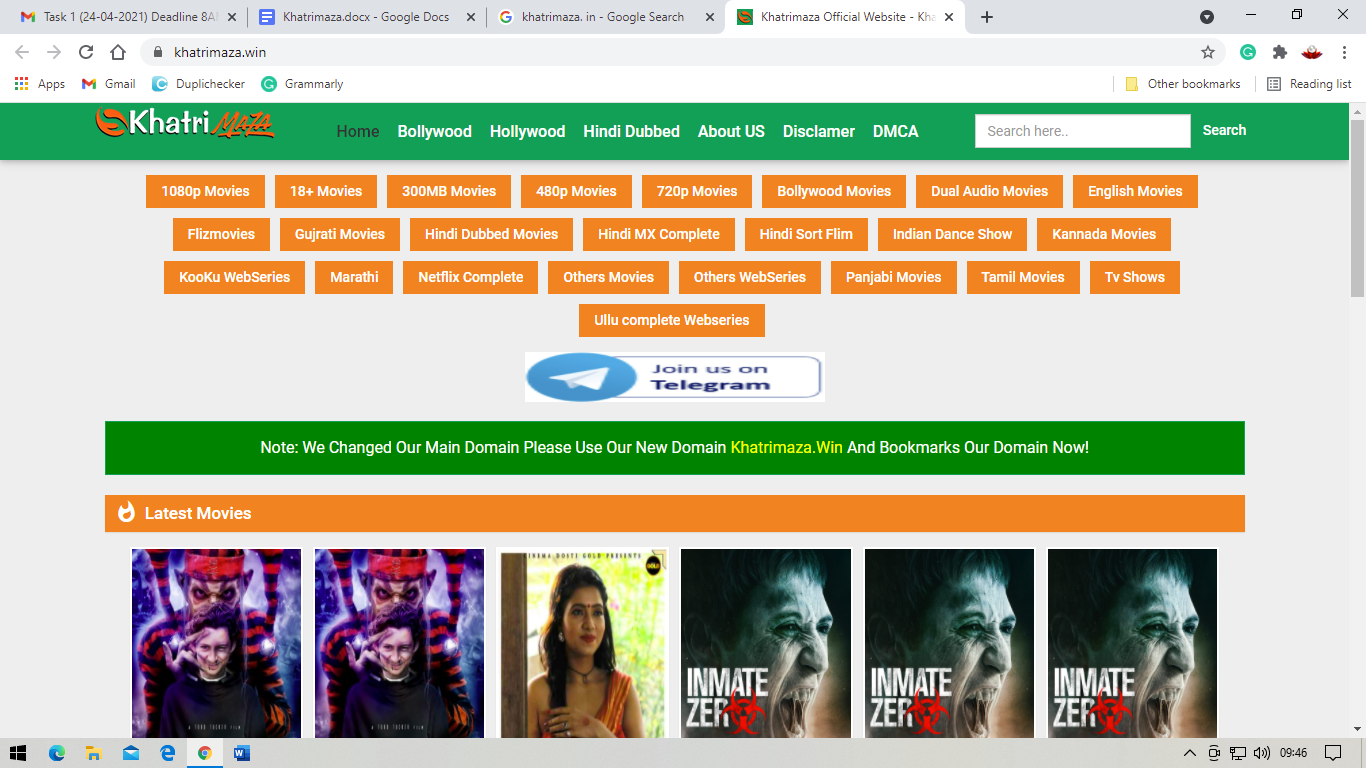Khatrimaza: 2025 Movies, News & Alternatives - What You Need To Know
Is the allure of freely accessible movies worth the potential risks? The proliferation of platforms offering pirated content, such as Khatrimaza, poses significant threats to the film industry and, ultimately, to consumers themselves.
The digital landscape is awash with websites and platforms promising access to the latest cinematic releases, often at no cost. These platforms, mirroring the functionality of legitimate streaming services, entice users with a vast library of movies, spanning various genres and languages. Khatrimaza, in particular, has garnered notoriety as a hub for pirated content, offering Bollywood, South Indian, Hollywood, and Hindi-dubbed movies for download.
Users are frequently drawn to these platforms by the promise of instant access to new releases, avoiding the costs associated with cinema tickets, subscription fees, or digital rentals. The appeal is undeniable, especially for budget-conscious viewers eager to stay abreast of the latest cinematic trends. Websites like Filmibeat offer a glimpse into the world of upcoming films, detailing release dates, trailers, and reviews, keeping audiences informed about the movies they can expect to see. Similarly, platforms such as Bollywood Hungama serve as a central repository for Bollywood content, encompassing news, box office collections, and more.
However, the convenience and cost-effectiveness of these platforms often come at a steep price. Khatrimaza, along with other similar websites, operates outside the bounds of legal and ethical frameworks. They facilitate the illegal distribution of copyrighted material, impacting the financial stability of the film industry and undermining the efforts of filmmakers, actors, and the entire creative ecosystem.
Let's delve into the specifics of this problematic platform. The following table provides a detailed overview:
| Category | Details |
|---|---|
| Website Name | Khatrimaza |
| Nature of Business | Illegal distribution of copyrighted movies |
| Content Offered | Bollywood, South Indian, Hollywood, and Hindi-dubbed movies |
| Primary Function | Facilitates free movie downloads and streaming |
| Legal Status | Operates in violation of copyright laws |
| Risks to Users | Potential exposure to malware, viruses, and legal repercussions |
| Impact on Film Industry | Contributes to financial losses and hinders creative development |
| Alternative Platforms | Netflix, Amazon Prime Video, Disney+, Hotstar, etc. (Legal streaming services) |
| Content Source | Obtained through illegal means, including camcording and unauthorized uploads |
| User Experience | Often characterized by intrusive advertisements, unreliable downloads, and potential security risks |
The modus operandi of Khatrimaza and similar platforms involves several key steps. Initially, these sites source movies through various illegal channels. This often includes camcording recording movies illicitly in cinemas or obtaining copies from those involved in the film's production or distribution. Once a copy of a movie is obtained, it is uploaded onto the platform's servers and made available for streaming or download.
To attract users, these platforms rely heavily on search engine optimization (SEO) techniques. They often use keywords like "Khatrimaza 2025," "latest Bollywood movies," or "free movie download" to improve their visibility in search results. Moreover, they frequently update their content libraries, adding new releases as quickly as possible to maintain user engagement and ensure that users return for more content.
However, this convenience comes with significant downsides. Users risk exposure to malware and viruses, which can compromise their devices and steal personal information. Downloading content from these platforms can also carry legal consequences, including fines or even prosecution, depending on the jurisdiction.
The film industry is significantly impacted by the activities of platforms like Khatrimaza. Piracy leads to substantial financial losses, reducing the revenue generated by films and hindering the growth of the industry. This, in turn, impacts the jobs of filmmakers, actors, and everyone involved in the film production process.
Legitimate platforms, such as Netflix, Amazon Prime Video, and Disney+, offer a secure and legal alternative for accessing movies. These services offer a wide variety of content and provide a safe viewing experience while supporting the film industry. Platforms like JustWatch are also helpful, enabling users to easily locate the streaming services where their preferred movies are available.
Furthermore, many consumers are now turning to digital rentals or purchases through platforms like Apple iTunes, Google Play/YouTube, and Amazon Prime Video, among others. These offer a convenient and secure way to watch movies without risking exposure to pirated content.
The importance of supporting the film industry is paramount. The creativity, artistry, and hard work of filmmakers are what entertain and inspire us. Choosing to watch movies through legal channels ensures that the film industry can continue to thrive and provide us with the entertainment we enjoy.
Consider the broader implications of illegal downloading. The act of downloading a movie from Khatrimaza or a similar website is not a victimless crime. It harms the industry that creates the movies we love. By supporting these platforms, consumers inadvertently contribute to the financial instability of the film industry.
Consider the impact on employment within the film industry. Piracy leads to job losses, affecting the livelihoods of countless individuals involved in production, distribution, and exhibition. When people download movies illegally, they are also diminishing the prospects for future creative endeavors, as financial resources available to filmmakers and studios shrink.
The future of cinema relies on the collective choices of moviegoers. By choosing legal alternatives, individuals can support the film industry and contribute to its longevity. This means subscribing to streaming services, renting movies, or purchasing digital copies, all of which help filmmakers and studios thrive. It is a step toward ensuring that future generations can enjoy the magic of cinema.
Navigating the digital world with vigilance is crucial. Websites such as AZ Movies help viewers identify where to watch movies legally. These platforms often provide reviews, ratings, and details on how to access movies, ensuring viewers are informed and can make responsible choices.
The issue of piracy extends beyond simple downloads. The ease of finding pirated content often masks the potential dangers it poses. Websites like Khatrimaza often host malware, viruses, and other malicious software. These threats can compromise devices, steal personal data, and disrupt the user experience. The risks far outweigh the rewards of accessing content illegally.
The "Hollywood of the East" a term that captures the dynamism and global appeal of Indian cinema showcases the value and diversity of film. Supporting Indian films, whether by watching them legally or through cinemas, strengthens the global film market, further diversifying the range of content accessible to audiences worldwide.
Platforms like Filmibeat provide up-to-date information on releases, trailers, and reviews, helping viewers make informed decisions about their viewing choices. This includes information on upcoming films and the theaters where they will be screened.
The popularity of Khatrimaza and similar platforms is partially due to a desire to avoid the costs associated with legal viewing options. This is a complex issue, as not all individuals have equal access to streaming services or can afford to pay for cinema tickets. Finding a balance that accommodates both the financial realities of consumers and the need to protect creative content is essential.
The availability of free, pirated content presents a significant challenge to the film industry. However, the solution lies not solely in enforcement, but also in providing accessible and affordable legal viewing options. Initiatives like offering tiered streaming subscription plans, promoting digital rentals, and creating partnerships with theaters to provide more affordable access to films are important steps towards curbing piracy.
The importance of promoting media literacy cannot be overstated. Educating consumers about the risks and ethical implications of accessing pirated content is crucial in the fight against piracy. This includes informing people about the dangers of malware and the impact of piracy on the creative community. Furthermore, it is essential to highlight the benefits of legal viewing options and the ways they support the film industry.
The entertainment industry has a responsibility to adapt to the changing media landscape. This includes developing user-friendly and affordable platforms that allow consumers to access a wide range of content. By investing in innovations like personalized recommendations, interactive content, and ad-supported viewing options, the industry can better cater to the needs and preferences of the audience, reducing their reliance on illegal alternatives.
Consumers must be empowered to make informed decisions about the content they consume. By understanding the ethical implications of piracy and being aware of the risks involved, users can make more responsible choices. Consumers can also take steps to protect themselves from online threats by using strong passwords, being careful about clicking on suspicious links, and maintaining up-to-date anti-virus software.
The goal should not be to simply eliminate piracy but to create an environment where accessing legal content is convenient and affordable. This requires collaboration between the film industry, technology companies, and government agencies. It involves constant adaptation and a commitment to staying one step ahead of the evolving threat of online piracy. The collective goal is to protect the creative process and sustain the film industry for future generations to enjoy.
In this digital age, the availability of illegal content poses a constant threat to the film industry. However, by promoting legal alternatives and educating consumers about the risks and ethics of piracy, a more sustainable and prosperous future for cinema can be secured.


